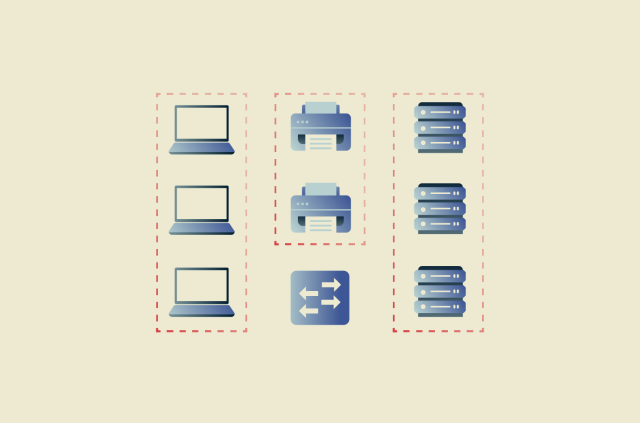-

What is a VLAN? A complete guide to virtual LANs
A virtual local area network (VLAN) is a method of segmenting a single physical LAN into multiple separate networks through software. This guide covers how VLANs work, the possible benefits they bring...
-

What is a P2P VPN, and how does it work?
When you use a virtual private network (VPN), you’re trusting a company’s app and servers to protect your data. A peer-to-peer (P2P) VPN challenges that model with a different idea: what if the us...
-

A complete guide to MPLS VPN services for secure and reliable connectivity
In enterprise networking, the choice of how to connect offices, data centers, and remote users has a direct impact on performance, reliability, and cost. One solution is a multiprotocol label switchin...
-

What is DNS TTL? Best practices for privacy and performance
Every time you visit a website, your device sends a request to a Domain Name System (DNS) server, which looks up the domain name and then sends you the numerical IP address associated with it. The res...
-

What is 128-bit encryption, and is it still secure in 2026?
128-bit encryption remains a cornerstone of online security, protecting everything from virtual private network (VPN) traffic to mobile apps. It’s widely used and has never been reported to have bee...
-

PPTP vs. L2TP: What’s the difference?
The Point-to-Point Tunneling Protocol (PPTP) and Layer 2 Tunneling Protocol (L2TP) are both virtual private network (VPN) tunneling protocols, but they function very differently. All VPNs direct inter...
-

What is SSTP (Secure Socket Tunneling Protocol)? Complete guide
There are numerous VPN protocols to choose from when you want to establish a secure connection and encrypt your online data, including OpenVPN and WireGuard. SSTP, or Secure Socket Tunneling Protocol,...
-

Internet infrastructure: What it is and how it works
The internet feels so simple: you tap a screen, click a mouse, and enjoy a whole world of information and connections, right there at your fingertips. Behind the scenes, however, the internet is anyth...
-

WireGuard vs. IPsec: Which VPN protocol is better?
When it comes to VPN security, stability, and speed, the protocol you choose can make or break your online experience. As such, it’s important to know the differences between the top options, so you...
-

Split tunneling vs. full tunneling: Which should you use?
A virtual private network (VPN) can be configured to handle your traffic in two modes: full tunneling and split tunneling. With full tunneling, all your traffic goes through the VPN, whereas with spli...

This content is not available in your region
To continue, please visit our dedicated website for the United Arab Emirates.
ExpressVPN for UAE
